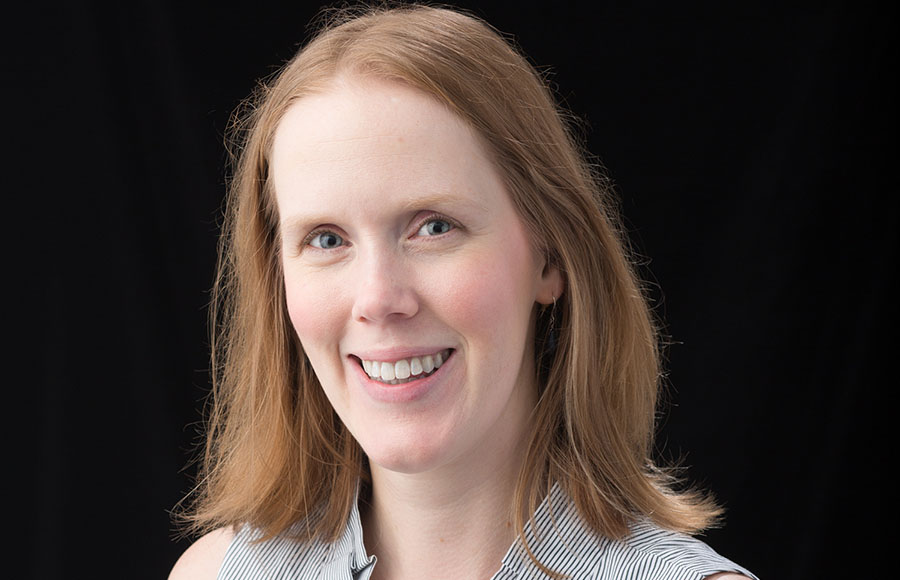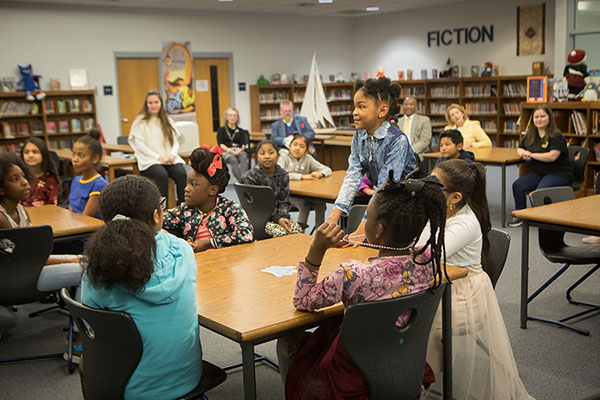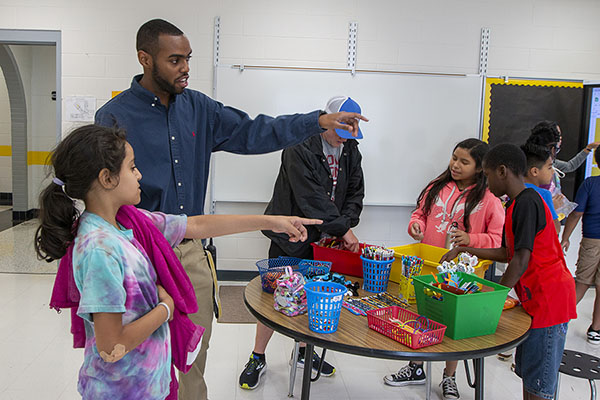Dr. Rebecca Payne Jordan
Assistant professor
Department of Reading Education and Special Education
UNC System Literacy Fellow
University of North Carolina System
BOONE, N.C. — Dr. Rebecca Payne Jordan, assistant professor in the Reich College of Education’s Department of Reading Education and Special Education, is one of eight faculty across the University of North Carolina System appointed a Literacy Fellow as part of the System’s Literacy Framework Development Initiative.
For the past 12 years, Jordan has tutored multiple students with reading disabilities, and over the course of her career, she has served as a classroom teacher, an instructional coach and a program specialist. She has worked directly with teachers and students at the App State Academy at Middle Fork — a UNC System laboratory school located in Walkertown and operated by App State — on literacy instruction and development.
The Literacy Framework Development Initiative is a result of the UNC Board of Governors’ Resolution on Teacher Preparation, passed in April, which calls for the UNC System Office to develop a common framework for literacy instruction in teacher preparation, to be adopted by all educator preparation programs in the System.
Research shows students who are able to read on grade level by the end of third grade are more likely to graduate from high school, enroll in postsecondary education, earn a college degree or credential and experience economic success in adulthood. Only 36% of North Carolina’s fourth graders scored proficient in reading in 2019, with just over 20% of low-income fourth graders reading on grade level, according to the 2019 National Assessment of Educational Progress.
Jordan and the other Literacy Fellows will collaborate to develop a detailed framework that will give UNC System graduates of elementary and special education general curriculum programs an in-depth understanding of reading as a process involving oral language, phonics, fluency, vocabulary and comprehension.
The framework will be based on scientific research into the essential components of reading and will align with state reading requirements and other statewide literacy initiatives.
Jordan said, “The development of these common guiding principles will help us graduate more highly qualified teachers who are able and willing to provide differentiated, evidence-based instruction that meets each student’s needs.”
Once the framework — under development since August — is complete, the fellows will help implement and evaluate this new tool.
Literacy work at the Academy at Middle Fork
Pre-pandemic, Jordan regularly visited the Academy at Middle Fork to model evidence-based instruction, including English language arts lessons, for teachers to see firsthand how they can support continued literacy development. She also co-taught classes, observed teachers and provided feedback on their instruction.
Jordan, who has continued to support academy teachers virtually during COVID-19, said the work she engages in at the academy helps ground her own teaching, making relevant the academic knowledge she uses to instruct pre-service and in-service teachers.
“Instead of merely being theoretical, I can share the ways the content I teach plays out in real classrooms with real students,” she said. “It provides an authenticity and a depth of context that would otherwise be lacking without deeply engaging in real classroom instruction. I learn from the teachers and students at the academy as we explore various instructional strategies together.”
More on Dr. Rebecca Payne Jordan
Dr. Melba Spooner, dean of the Reich College of Education, said, “Rebecca is a dedicated, early career professional who is advancing the field of reading education through her service as a Literacy Fellow. She is engaging in critical work that will produce transformational change related to not only our education preparation program but also elevating the success of K–12 students.”
Along with her literacy work at the academy, Jordan continues to explore the ways reading and writing develop in children, particularly students with developmental disabilities, and the ways instruction can capitalize on students’ existing knowledge. Her work has been published in top-tier journals, including Literacy Research and Instruction; Learning Disabilities Research and Practice; and Teaching and Teacher Education.
Her research agenda has a dual focus on both teachers and students. She seeks to better understand the literacy knowledge, skills and beliefs of pre-service and in-service teachers and how those are developed and transformed.
She received her doctorate in early childhood, special education and literacy from UNC-Chapel Hill and her master’s degree in curriculum and instruction with a specialization in reading education from UNC Greensboro.
In addition to her general education and reading education licenses, she also holds an English as a second language K–12 license. She has taught most of the elementary grades but considers herself a first-grade teacher at heart, she said.
This past spring, Jordan served as first reader for a student’s Honors College thesis.
What do you think?
Share your feedback on this story.
About the Reich College of Education
Appalachian State University offers one of the largest undergraduate teacher preparation programs in North Carolina, graduating about 500 teachers a year. The Reich College of Education enrolls more than 2,000 students in its bachelor’s, master’s, education specialist and doctoral degree programs, with offerings that span multiple fields — from teacher preparation, counseling, and therapy, to higher education, school and student affairs administration, library science, educational leadership and more. With over 10,000 alumni employed in North Carolina public schools, there is at least one Reich College graduate in every county in the state. Learn more at https://rcoe.appstate.edu.
About Appalachian State University
As a premier public institution, Appalachian State University prepares students to lead purposeful lives. App State is one of 17 campuses in the University of North Carolina System, with a national reputation for innovative teaching and opening access to a high-quality, cost-effective education. The university enrolls more than 21,000 students, has a low student-to-faculty ratio and offers more than 150 undergraduate and 80 graduate majors at its Boone and Hickory campuses and through App State Online. Learn more at https://www.appstate.edu.














